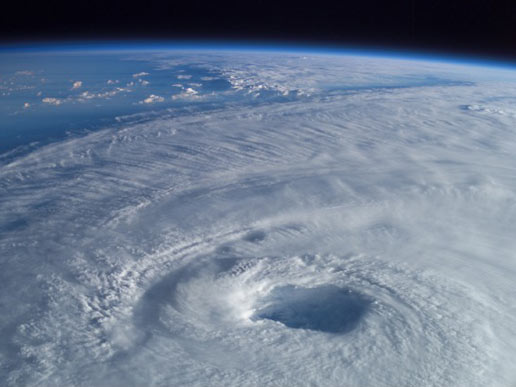In the last 30 days, the Gulf of Mexico and Atlantic Ocean have played host to four hurricanes, three of which reached category 3 or higher, with Hurricane Irma claiming the title as the strongest hurricane ever recorded in the Atlantic Ocean.
After Hurricane Harvey, the first of the four, made landfall in the state of Texas, killing more than 70 people and causing unprecedented flooding, news stories began pouring in with climate scientists and experts explaining how this storm became so devastating due to climate change. When Hurricanes Irma, Jose, and Katia formed just two weeks later and grew to become major storms, these analyses were further supported.
As the articles and commentaries linking climate change to the severe weather events happening in the United States spread across the internet, so too did stories intending to shut down informed discussion of the issue.
One day before Hurricane Irma started battering the Florida coast, editors at Newsweek made the decision to run an op-ed from the Cato Institute titled “Don’t Blame Hurricanes Irma and Harvey on Climate Change.” The author of the piece, Alan Reynolds, is a senior fellow at the Cato Institute, and Newsweek did include mention that the piece originated from Cato. However, they failed to note that Cato was founded by Charles Koch and funded by the Koch Brothers, making any climate “assessment” from the organization suspect.
Reynolds freely admits in the article that he is an economist, not a scientist, but that didn’t stop him from attacking what he called the “smug arrogance” of experts in the field of climate change and opening the article with a viscious attack: Their authors claim to be wise and well informed, and anyone who dares to question their “settled science” must need to have their eyes pried open and their mouths shut. There will doubtless be similar “retroactive forecasting” tales about Irma, so recent story-telling about Harvey may provide a precautionary warning for the unwary.
Reynolds then attempts to downplay the significance of the 51 inches of rain that Harvey dumped on Texas by pointing out that tropical storm Amelia dumped 48 inches of rain on Texas in 1978. He argued that the surface temperature of the Gulf of Mexico was lower then, and because Amelia delivered nearly as much rain as Harvey, that warmer waters and climate change could not have played a role.
Like many deniers, he attempts to link the warming waters in the Gulf of Mexico to everything except climate change, including El Nino. While other weather factors do contribute to temperature variations, he ignores the fact that overall temperatures in both the Gulf and the Atlantic Ocean are rising at a steady rate, and are closely correlated to rising concentrations of greenhouse gases in the atmosphere.
To drive his points home, he provides a chart at the end of his piece showing that we’ve seen far more hurricanes and tropical storms in the Atlantic basin in the past than we are seeing today. Not surprisingly, the graph was created by The Cato Institute.
Perhaps a more telling graph for Reynolds to consider would be a scientifically-sound one that contradicts his points about sea level temperature increases, provided by the Environmental Protection Agency.
Reynolds’ piece is filled with misdirections, falsehoods, and circular logic—none of which make a coherent argument that climate change is not the culprit behind the storms. Furthermore, he completely ignores the fact that science has repeatedly said that warming ocean temperatures may not always result in more storms, but it will certainly result in stronger storms, which is exactly the case of storms like Harvey, Irma, and Jose.
To their credit, Newsweek has also run pieces discussing the link between climate change and stronger storms, but their decision to run this Cato piece is dangerously irresponsible, especially at this moment in time. Considering the fact that on the weekend that Irma hit Florida only one of the major news networks’ Sunday shows asked a guest one single question about climate change, the decision by Newsweek to run an article by an industry-funded think tank becomes even more troublesome.
Image: Close-up view of the eye of Hurricane Isabel taken by one of the Expedition 7 crewmembers onboard the International Space Station via NASA.gov.
Subscribe to our newsletter
Stay up to date with DeSmog news and alerts







